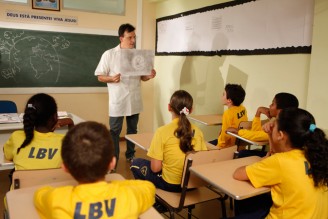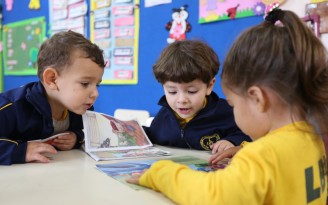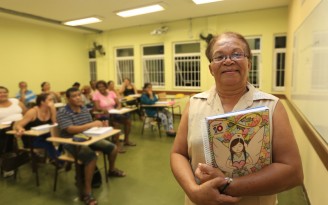
School promotes social inclusion of deaf children
By the Editorial Staff
Wednesday | July 20, 2016 | 11:56 AM | Last update: September 22, 2016, 4:07 PM (Brasilia time)
In 2013 the Good Will Portal presented the story of the deaf boy Leonardo José, who mobilized the school’s multidisciplinary team when he arrived at age 3 at the Good Will Educational Complex. Educational measures were quickly taken, like the use of technological resources and the training of teachers in Brazilian sign language (LIBRAS), while special activities were carried out with the other students as a way of encouraging interaction with their deaf classmate. These activities have expanded ever since and the school has welcomed deaf children from other schools, who receive the same assistance.
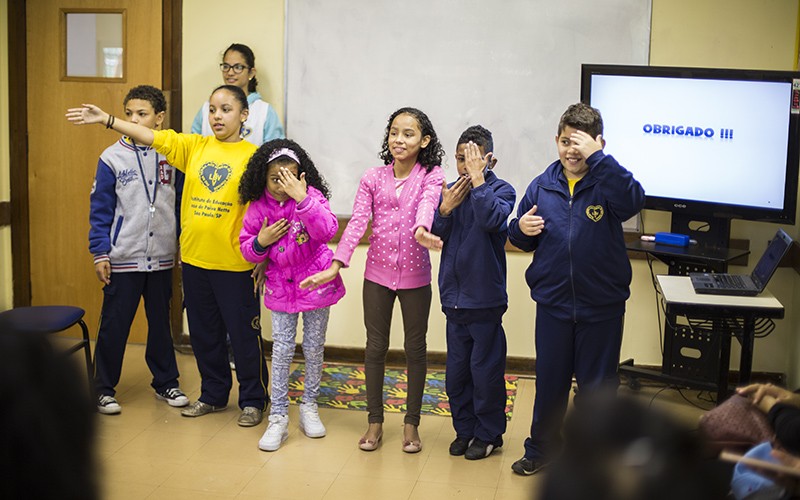
“When Leonardo arrived, since we didn’t have any deaf children other than him, and because we know it’s very important for his educational, social, human, and identity development, the Legion of Good Will (LBV) accepted other deaf children so he could benefit from this interaction in sign language and socialize with them. The other children also benefited from the support offered by the school,” explains Odirlei Faria, sign language teacher at the LBV.
The José de Paiva Netto Educational Institute develops its bilingual teaching project for the deaf students with the objective of helping them with their cognitive, social, and emotional development, as well as teaching them sign language. The group meets three times a week in the school, accompanied by a teacher and young apprentices from the Organization, as is the case of Maria Isabelle Anselmo:
The school has partnered with the sports’ coordination team to offer activities with balls and body exercises on the outside court and in the karate studio. After all, sign language not only involves hand and face movements, but moving the whole body. The more the body is worked during the classes, the better the communication between deaf people. “Obviously we don’t consider just teaching them, but all the social work, the socialization between them, the emphasis on sharing, behaving, and respecting; we apply these values the whole time in the school,” says Sandra Solato, sports’ coordinator at the Good Will Educational Complex.
“Something very important for us is self-acceptance. We can see that we’ve helped achieve this through this bilingual education. One of the premises of this education is that deaf children socialize with deaf adults so their identity is strengthened in a healthy way. In other words, they know they’re children, but when they see a deaf teacher and a young deaf girl helping that teacher, they feel they can move forward, study, go to college, and have a normal life in the future,” said teacher Odirlei.
Family involvement in the whole learning process brings about safety and allows children to greatly benefit from the education they receive. This is what mother Silvana da Silva confirms. She has two daughters in the Organization’s school: one can hear and the other is deaf, but both take part in the project. “The development of my deaf daughter has enhanced. For me the fact that my other daughter is with her is very important, since she’s the only hearing person in the project, and now the two have more contact; they’re talking more. The lack of communication with deaf people is abysmal because only a very people know sign language. So when they’re at home communicating with us, it’s a lot better.”
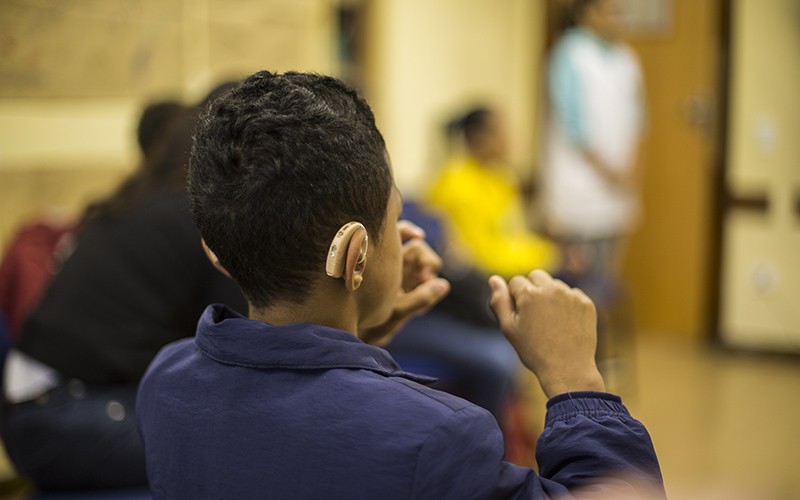
For the mother of Leonardo, Elizabeth de Andrade, “the project brought the peace he needed. He can say what he thinks and be understood by other people and no longer be interpreted. They understand what he really wants to say, and what he agrees with or doesn’t agree with. I’ve noticed that he has expressed himself a lot through sign language.”
All activities are permeated by the Pedagogy of Affection and by the Ecumenical Citizen Pedagogy, which were created by the President of the LBV, Paiva Netto, and that encompass much more than the cognitive development; they foster respect, socialization, understanding of the meaning of the world, the value of everybody, and how much they can help each other. When they receive this special teaching, “the students start establishing much more than simple communication. They establish the language of love, respect for differences, a ‘view beyond the intellect’ which educator Paiva Netto invites us to develop every day in the school of the Legion of Good Will,” explains Aline Trevisan, Assistant Principal of the Good Will Educational Complex.
In the LBV the steps for a future full of opportunities for the children are taken today. Help the Organization expand this work and help more families. Donate now!
